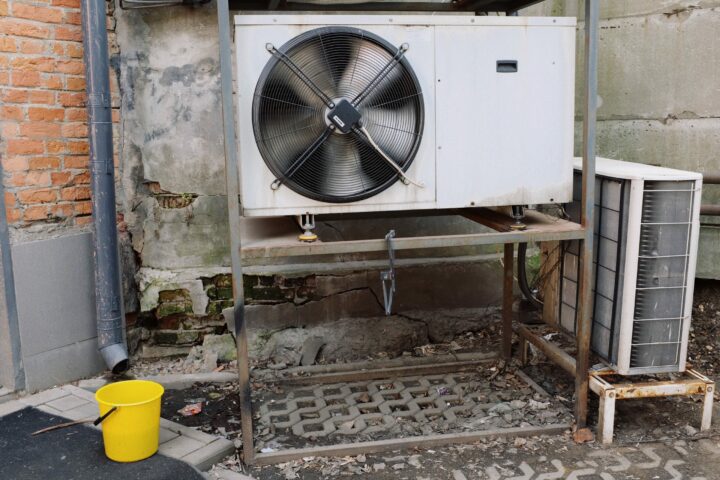The following contribution is from another author.
Services can be defined as tangible goods that are both produced and consumed simultaneously, like changing an air filter, cleaning ductwork or conducting visual inspections – tasks which homeowners can easily perform to help protect their HVAC systems against serious issues.
But if repairs are becoming frequent, perhaps now is the time to consider replacing it completely. Conducting a cost-benefit analysis can help guide you to making an informed decision for your home, but if it hasn’t come to that yet – give the following article a read and maybe you can fix your problems, yourself.
Dirty Filters and Coils
Dirty air filters and coils are an expensive HVAC issue that should not be neglected lest you have thousands of dollars to spend, according to this site. Air filters become filthy for various reasons – including leaky air ducts kicking dirt into the unit, high levels of dust and debris in the air or mold accumulation on filters – however the best way to safeguard your system is to replace the filter as required and keep it clean.
Your AC system’s condenser and evaporator coils are the heart of its operation, making them particularly vulnerable when dirty. Their primary role is transferring heat from inside your home to outdoors; when dirty they must work harder to achieve similar results.
Dirty coils not only reduce energy efficiency but can also contribute to biological growth that negatively impacts health, negatively impacting you, your family or staff. To avoid such problems it’s wise to schedule regular maintenance of your HVAC system by Class A HVAC in Chilliwack or your local professionals. You should also follow manufacturer-recommended cleaning and inspection routines.
Many homeowners attempt to clean their coils themselves, but it is best left to experienced HVAC professionals. Cleaning an individual coil takes hours of labor-intensive effort if located on a roof that requires climbing ladders or special equipment – not including damage that occurs from doing this without proper equipment and tools.
Ignition Issues
If your system is experiencing ignition problems, the technician must access its interior to determine what the source may be. It could be as simple as a dead pilot light or more in-depth testing such as electrical issues, blown fuses or tripped breakers; even seemingly minor problems can have serious repercussions and cost you significantly in repair bills if left unattended.
It is essential to remember that even minor issues can quickly escalate. Keeping your HVAC system regularly serviced will reduce ignition problems significantly and potentially save money in repair bills when dealing with ignition issues arises compared with leaving issues unattended for too long (source: https://www.washingtonpost.com/home/2023/05/23/is-hvac-checkup-inspection-necessary/) keeping ignition issues less likely by performing preventive maintenance routinely will save money in repair bills than fixing larger repairs costs.
Capacitors serve an essential function in electrical circuits as mini batteries that store energy for quick release when required. Over time however, capacitors may become damaged from age-related corrosion or malfunction and eventually stop working altogether; when this occurs it must be replaced in order to get your system back online.
Blown fuses and tripped breakers are telltale signs of problems with your system’s electric current. Luckily, most experienced technicians are easily capable of fixing these problems before further damage occurs to your system and possibly leading to fires or injuring family members. If left unfixed, however, these issues could lead to more severe system damage as well as increased electrical fire risk for you and potentially dangerous injuries or fires in the home.
Thermostat Issues
Thermostats play an essential role in HVAC system operation, helping regulate temperatures and ensure systems only run when necessary. Unfortunately, thermostats can become damaged over time, necessitating repairs or replacement. Luckily, however, most thermostat issues are fairly easy to resolve with some basic troubleshooting skills from homeowners themselves.
First and foremost, if the display on your thermostat is completely blank or certain buttons don’t respond to temperature changes, that could be a telltale sign that new batteries need to be installed or that there may be an overheated fuse in its circuit board. These solutions may be relatively straightforward fixes that should be checked first before considering an expensive replacement option.
One of the more frequent issues with thermostats is their failure to accurately read ambient air temperatures, often caused by buildups of dust and dirt in their boxes. Easily rectifying this is by opening them up and using a soft brush on any dirt or lint that clogs sensors and parts – or in more extreme cases replacing defective or damaged sensors, which also cause inaccurate readings from them.
Leaks
Leaks in HVAC systems can have serious repercussions. A refrigerant leak, also known as Freon, is one such issue with both environmental and financial consequences. Refrigerant (also called Freon), as a chemical compound that travels through air conditioning units to absorb heat before dissipating it outside, relies on refrigerant to become liquid during the cooling process before changing back to its low-pressure state again later on.
Some leaks may be more difficult to pinpoint and repair, particularly with older units. Copper tubing carrying refrigerant may develop cracks or holes over time; in this instance, this blog suggests that it may be necessary to replace all of it altogether. Other components, like evaporator coils or condenser coils may also experience leakage issues that necessitate total replacement of these parts of your unit.
Clogged or blocked drain lines are another frequent issue. Dirt, dust, algae and debris can accumulate in drain lines over time, resulting in backups of water that leak into HVAC systems. To combat this situation, regularly cleaning and flushing your drain lines as well as installing float switches can help to detect clogs before they affect you and keep HVAC units functioning normally.
















